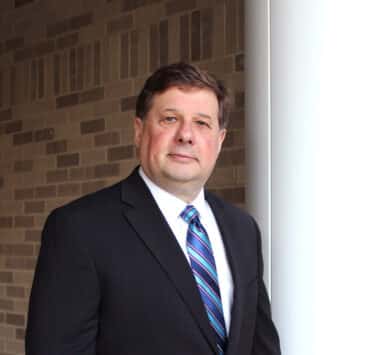When just twelve years old, Tracey McMichael watched her grandparents lose their dream home. They worked and saved their whole lives to build a retirement property, but put their plans and lives on hold to care for a family member with a new leukemia diagnosis. Even at a young age, she resented the injustice of watching a family trade a precious and tangible goal for lifesaving care.
The fresh memory lingered when McMichael started volunteering as a candy striper, just three years later. As she walked the halls of Children’s Hospital of Philadelphia, she struggled through the painful emotions that surface when one cares for sick and vulnerable children. Although finding direct patient interaction challenging, she flourished when helping families navigate the administrative hurdles in the hospital setting.
McMichael developed something of a reputation. She became known as the go-to candy striper for patients and parents needing to track down a form, find a specialist, or reach a remote department. “I didn’t like what families had to go through when they had a loved one in the hospital, and I liked solving problems behind the scenes more than I liked providing direct patient care. It was difficult watching sick children at the age of 15,” she explains.
The gradual realization set McMichael on a new path and helped clarify her personal mission and purpose. “Everyone gets sick,” she says. “And I believe everyone should be able to trust their healthcare provider, and everyone should have access. What I do every single day involves improving and expanding access to care.”
“What I do every single day involves improving and expanding access to care.”
Tracey McMichael
Over the last twenty-five years, that belief helped McMichael emerge as a change agent and strategic leader in operational excellence and healthcare finance. She’s doing something common in an uncommon way. Like many of her counterparts, McMichael builds teams and implements processes to address service delivery and billing operations—but she’s doing it all without neglecting the human element or sacrificing customer service.
Today, McMichael serves as the vice president of revenue cycle at Adventist HealthCare (AHC), a role she prepared for through positions with Aramark, Quest Diagnostics, Allscripts, and Kaiser Permanente. Managing a $2 billion Medicare business for Quest gave McMichael insight into the operator’s perspective, while Kaiser provided her the opportunity to touch every part of the end-to-end process from pre-services to discharge.
It all comes together at Adventist Healthcare, the faith-based, nonprofit integrated health system serving patients in and around the nation’s capital. AHC, headquartered in Gaithersburg Maryland, includes three acute-care hospitals, two physical rehabilitation hospitals, primary and specialty care services, outpatient imaging centers, cancer centers, and home care services. McMichael leads revenue cycle for acute and ambulatory facilities at Adventist HealthCare and Howard University Hospital.
It’s a big job requiring a dedicated team. While McMichael implements efficient processes to get the job done, she also focuses on people. “Finance roles can feel like a heads-down job, but we need to build relationships with our patients and colleagues, so we can help others think strategically,” she says. “We do more than simply send bills and collect payments.”
The approach has led to a nimbler and more responsive group. A considerable help in the wake of the COVID-19 pandemic when revenue cycle functions had to adapt and pivot in the face of uncertainty and volatility.
McMichael saw COVID-19 as the right time to try new things. “We needed solutions during the pandemic, and the ordeal showed us that we don’t have to continue to do things the same old way they’ve always been done,” she says. The VP adds that she also talks to leaders in other industries to import best practices from outside of healthcare.
“Finance roles can feel like a heads-down job, but we need to build relationships with our patients and colleagues so we can help others think strategically. We do more than simply send bills and collect payments.”
Tracey McMichael
This year, AHC is piloting a centralized registration program for unscheduled emergency department services. Successful remote registration during the pandemic birthed the idea. Now, once a patient engages the health system and gives basic information at their point of first contact, any registrar across the enterprise can support that patient from any location.
The process flow improvement helps clinicians provide a unified customer experience. “Employees may work for different facilities or departments, but to our patients, we are all Adventist HealthCare, and we want to make sure we speak to them with one voice,” McMichael says.
As AHC grows through new partnerships with Howard University Hospital and others, its high-performing revenue cycle team leverages emerging tech solutions and other tools to keep services uninterrupted.
“Our goal is to get the patients through the administrative functions to their care in a way that’s not memorable, because they should be focused on their care and not administrative functions,” McMichael explains. AHC offers patients multiple financial options and ensures that finances are not a barrier to healthcare access.
McMichael has come a long way from her days as a teenage candy striper, but she’s still passionate about the work she does. “I love working in healthcare, and that’s not because of salary or title,” she says. “It’s because of the impact we have on our communities. What we do matters.”
Last year, Adventist’s 6,100 employees experienced 5,300 births, 24,000 admissions, and 124,000 emergency room visits. Together, they encountered 670,000 patients. Tracey McMichael and her colleagues do what they do so each of those individuals can leave the health system and go on to pursue their own ambitions and dreams.


